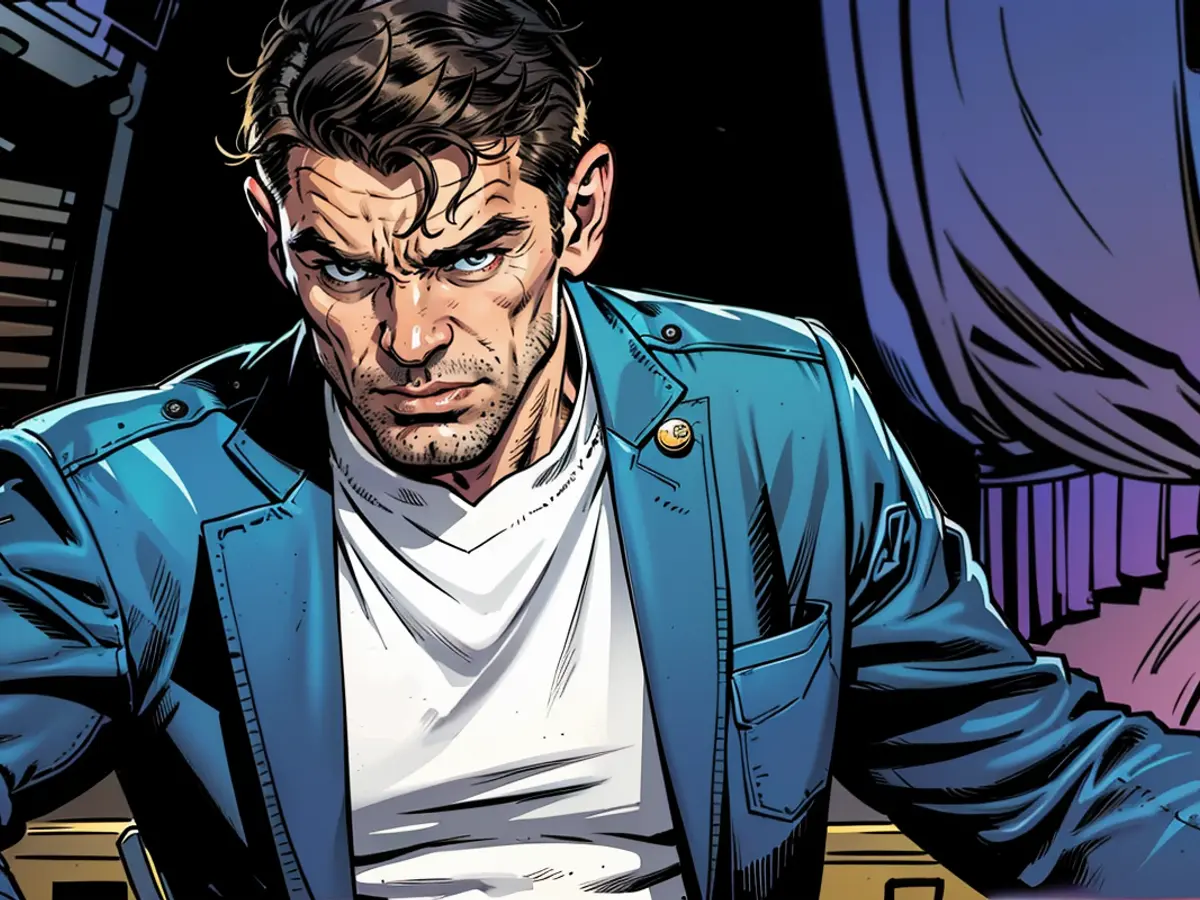"Assaulting military sites across Russia is justifiable"
*The new chair of Germany's Defense Committee, Marcus Faber, hails from Sachsen-Anhalt and shares Strack-Zimmermann's support for aiding Ukraine. In a recent interview, Faber discussed his plans for the role, differing from his predecessor's more aggressive approach.
ntv.de: Welcome, Mr. Faber! What does being chair of the Defense Committee actually entail?
Marcus Faber: Primarily, I lead the meetings of the Defense Committee. My responsibilities include deciding who gets to speak and preparing for such sessions. However, the real question is, what else can be accomplished from this position. In my opinion, a change is overdue since the European election results.
Your predecessor, Strack-Zimmermann, used her position to pressure Scholz on weapons deliveries. Do you intend to continue in her footsteps?
It's more like a game of soccer. You can play a defensive man-to-man game and rely on the opposing team to make mistakes. But you can also work collaboratively and focus on the main objectives. For me, that means ensuring the readiness of the Bundeswehr and supporting Ukraine, which benefits us as well. That approach is more effective, in my view.
What do you make of Putin's proposal for a weapons truce, in exchange for withdrawal and renunciation of NATO membership?
Putin isn't making an offer, but rather seeking rewards for his war crimes, to resume the war. Only after his invasion troops leave Ukraine can genuine negotiations take place.
Germany has already provided or pledged aid worth 28 billion euros for Ukraine. Doesn't that seem sufficient?
The key question is: What do we do and what is needed? Those things tend to diverge. While quantitatively we're making a lot, we often struggle to coordinate on a European level.
Why is that?
We could suggest to our partners, "We'll supply three Patriot systems and be a quarter of Europe. Now it's your turn. Please give us twelve more, or maybe nine." That would be the job of a Federal Chancellor or other high-ranking officials. But what are we doing ourselves? In air defense, we're making progress, but in other areas we're falling behind. We want to replace the outdated transport panzer Fuchs in the Bundeswehr this year, yet we've given away none of the previously serviced 900 units.
What can the Fuchs do?
The Fuchs is designed to transport protected personnel from one location to another, and it can even swim, which is useful in certain situations. It's simple and robust.
Are they ready to be deployed?
Yes, we can certainly make use of them. Taking the Leopard 2 tanks as an example, of the 330 in service, only 18 were given away, which amounts to 5%. The remaining 95% are still in storage.
Have the effects of these tanks dwindled, with some even ending up as trophies in Moscow?
The tanks have been and continue to be very helpful. I've spoken with tank crews south of Saporischja, who would have likely died if they were still using their old Soviet T64 tanks. The Leopard 2 offers superior protection. However, with only 18 tanks, a significant breakthrough in a continental war cannot be achieved. That's common knowledge.
For quite some time, ammunition shortages plagued the Ukrainians. How would you assess the current state of the war?
The situation has improved compared to three or six months ago. The USA is once again supplying ammunition, and deliveries from the Czech ammunition package are expected soon. The Ukrainians can now retaliate more frequently when attacked by the Russians. The Russians still maintain a decisive advantage in firepower. For every grenade, the Ukrainians can still scarcely respond.
Has permission been granted for Ukraine to attack Russian targets with western weapons?
Yes. It's no longer necessary to wait for a Russian bomber to take off and approach Russian territory almost empty-handed before obstructing it. We should be able to shoot down the bomber on the ground while it's refueling and rearming, for example. Thus far, such actions were not permitted, but now they are. In my opinion, that's the right approach.
How far would you go in this regard? Some might argue that Ukraine should be able to attack other targets with western weapons as well. They manufacture their own weapons for this purpose.
I have a clear stance. If we supply weapons, those weapons become Ukrainian arms. What the Ukrainians do with their own weapons is their business. They should abide by humanitarian international law, meaning they should not commit war crimes. For instance, they should refrain from bombing residential buildings in cities like Charkiw, like the Russians do. Targeting military assets is legitimate everywhere, even in Russia.
Is Germany aiding Ukraine solely for its own security? Do you truly believe Russia would attack Germany?
The positive news is: 90% of Russian ground forces are currently engaged in Ukraine, resulting in serious difficulties in advancing. The Ukrainians are fully occupying the Russians. However, if the Ukrainians are unable to defend their own land, we must prepare for any eventuality.
There's also the nuclear weapons factor. Defense experts often advise against becoming intimidated by such threats. Is Putin merely bluffing, or is there a real danger? Can one remain that calm?
Of course, it's important to remain cautious and prepared, but it's also crucial to maintain a level head and not overreact. The good news is that the situation currently appears manageable, and our primary focus should be on supporting Ukraine.
The Russian military standpoint isn't ambiguous: They only deploy nuclear weapons when directly attacked with them or when the Russian mainland is under threat. However, Ukraine isn't within Moscow's territorial limits.
But isn't Crimea, viewed through Putin's lens, part of the Russian homeland?
Nope, it doesn't make sense. Distancing something as distant as that sounds ludicrous to me. Plus, China has firmly stated its stance on nuclear weapons.
When I joined the German parliament in 2017, the defense budget was at 38 billion. Now it's increased to 52 billion. We still have some time. Defense hasn't been this prioritized before.
There are whispers of another special fund for the military on the horizon.
Another special fund would be calamitous. We can't risk the financial security and sustainability of Germany for it. Russia won't be able to overcome its financial struggles in this war. It can bank on its war economy all it wants. Our financial stability is crucial for our readiness to defend.
Pistorius has announced a partial reintroduction of conscription. What are your thoughts on that?
What Pistorius proposed in the committee seems logical. Essentially, they'll send out a letter, conduct an online survey, and obligate those interested. This helps us identify genuine potential recruits. From the interested group, we'll assess suitability. Even if they move on to other careers after six or twelve months, we'll amass a reserve over the years. These individuals won't require training on how to dismantle a G36 assault rifle.
If you encounter someone who's still undecided - what do you suggest?
Give this a look and see if it resonates with you. Attend the Day of the German Military. Observe the vast array of job opportunities. I could become a Mechatronics technician or a teacher. Or an IT expert. Being a soldier isn't just being a soldier.
Interview with Marcus Faber was conducted with Volker Petersen

Read also:
- Marcus Faber, the new chair of Germany's Defense Committee, has expressed support for aiding Ukraine and disagrees with his predecessor's more aggressive approach towards pushing for arms deliveries.
- In reference to Russia's proposal for a weapons truce, Faber maintains that genuine negotiations can only take place after Putin's invasion troops withdraw from Ukraine.
- Faber's stance on the debate on arms deliveries to Ukraine is in alignment with the Free Democratic Party (FDP), emphasizing the importance of supporting Ukraine to benefit German defense policy and the German Armed Forces.
- The FDP, along with the Federal Government, is pressing forward with plans for a traffic light coalition, which includes prioritizing defense spending and modernizing the Bundeswehr's equipment, including replacing outdated panzer Fuchs vehicles.








